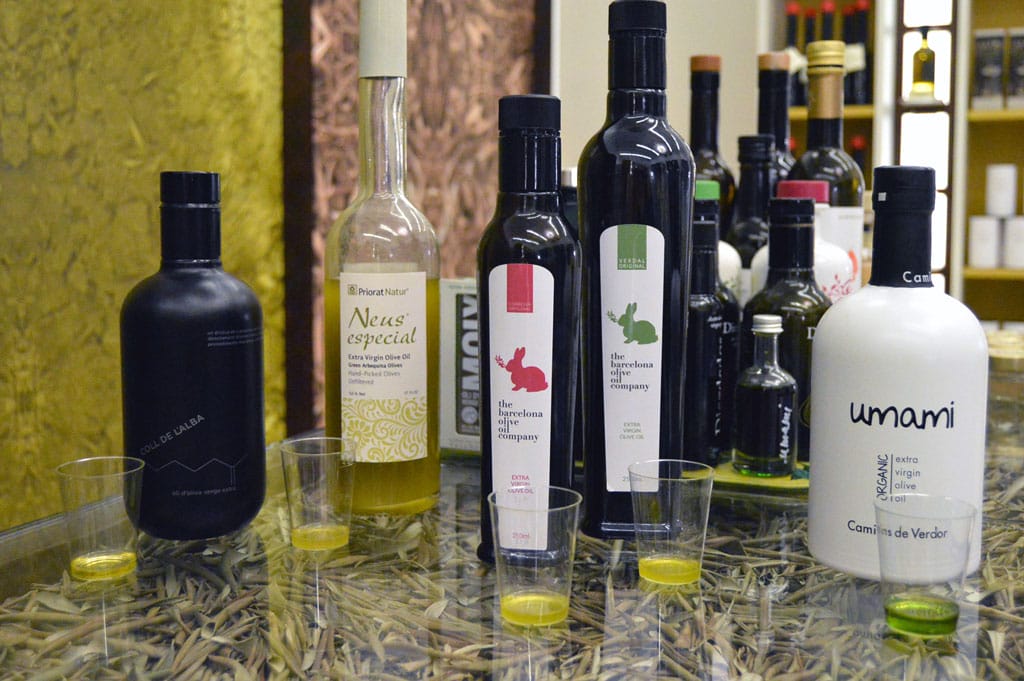“I don’t want to be famous, I just want to do my best and make good food. You have to work with honesty, from the heart,” Salem Kabbaz tells us.
Born in Damascus in 1945, Kabbaz is smiling and animated as he chats with friends and suppliers and walks in and out of his restaurant in the Barrio Gótico. A very small, discreet sign above the door marks his eatery, El Cocinero de Damasco – the Damascus Cook – which is devoted to Syrian specialties like shawarma, hummus and falafel. Neighboring residents and City Hall workers come for take away or to eat at the few tables inside the small eatery.
Europe today is struggling to figure out how to deal with the scores of Syrian refugees coming in search of a better life, but Kabbaz’s own migration story dates to 1980, when he came to Barcelona to open a restaurant with his own resources and the experience inherited from his family’s three generations of cooks. Years ago, he had a kebab joint near Plaça Real, but in 2011 he opened up his current place, where he makes the flavorful shawarma that has become the favorite of many Barcelonans.

In the little kitchen, behind the counter where a few different kinds of baklava are displayed, the team of Carles and Carlos prep and cook ingredients according to Kabbaz’s instructions, and jokes pass between them in the relaxed, yet efficient atmosphere. Kabbaz buys his ingredients fresh every day; to go with the hand-cut turkey thigh or lamb, there’s a salad of onions, tomatoes and cucumbers, tahini sauce and perhaps a touch of cinnamon. Everything is rolled up in thin flatbread. It’s simple, honest and good.
In Damascus, Kabbaz’s family owned a couple of restaurants called Siddiq, one of them a famous eatery which opened in the 19th century and specialized in traditional cuisine and also offering, of course, shawarma. Kabbaz himself wrote a cookbook (El Cocinero de Damasco, 2008) of Syrian recipes that he learned from his grandfather.
Kabbaz has never gone back to Damascus since coming to Spain and mentioning the war in Syria to him is like introduce dense grey clouds in a usually blue sky.
In Barcelona there are a handful of restaurants specializing in traditional and contemporary cooking from countries like Morocco, Lebanon or Syria. Some examples are the successful Syrian Ugarit restaurants (a local chain, mainly in Gràcia) or La Fíbula, which serves Mediterranean-Arab cuisine. In the most popular neighborhoods, there are a large number of kebab eateries with Lebanese, Turkish or Syrian origins.
Excluding the kebab and shawarma places, restaurants serving traditional preparations are few – a particularly confounding reality if we consider the enormous medieval Arab influence on Spanish cuisine and the current crisis of Syrian refugees in the Mediterranean.

In fact, the current Spanish measures for refugee settlement are dark and contradictory. On one hand, Spain has an agreement with the EU to admit 16,000 refugees from Greek and Italian camps before 2017, the budget for refugees social assistance was increased to €253 million, and cities like Madrid and Barcelona are starting the process to admit more asylum applicants. Despite all this, the country is lost in bureaucratic processes, like obligatory visas, not accepting asylum requests from embassies and consulates and rejecting 68 percent of asylum seekers (compared to 48 percent on average in the EU). More than 10,000 refugees have passed through Spain, but only a few have received permission to stay or have even begun the process of obtaining such permission – most of them just depart for other European countries. Perhaps the recent creation of the new government will change this situation.
In the meantime, and in a landscape where there are few traditional Syrian restaurants among numerous döner kebab and shawarma places spread along the multicultural side of the city, it is especially satisfying to find a gem like this. As Kabbaz says, “This stream is narrow, but the water is sweet.”
 October 19, 2020 Building Blocks
October 19, 2020 Building Blocks
Spain, Italy, Greece, Turkey, Portugal, Morocco, Tunisia – one thing that unites this […] Posted in Barcelona June 3, 2019 Haritna
June 3, 2019 Haritna
On the walls at Haritna Restaurant are homages to simple sights: a large gate, ancient […] Posted in Istanbul, The Syrian Kitchen in Exile January 4, 2018 Rotisseria Sírio Libanesa
January 4, 2018 Rotisseria Sírio Libanesa
On a Monday at 1 p.m., private equity investor Nargilla Rodrigues and her two colleagues […] Posted in Rio, The Syrian Kitchen in Exile
Published on November 14, 2016
Related stories
October 19, 2020
BarcelonaSpain, Italy, Greece, Turkey, Portugal, Morocco, Tunisia – one thing that unites this swathe of the Mediterranean is olive oil, whose use in the Fertile Crescent can be traced back to 6000 B.C.E. Olives arrived in the southern part of the Iberian Peninsula around 9th century B.C.E. with the Phoenicians. Ancient Rome saw huge quantities…
June 3, 2019
Istanbul | By Dima Al Sayed
IstanbulOn the walls at Haritna Restaurant are homages to simple sights: a large gate, ancient Damascene windows – it’s a scene that hopes to inspire the very particular feeling of sitting in the middle of a Damascus square, down a well-trodden, old lane. For in Arabic, haritna means “our lane.” Also a colloquial term for…
January 4, 2018
RioOn a Monday at 1 p.m., private equity investor Nargilla Rodrigues and her two colleagues bring a fourth co-worker to the Rotisseria Sírio Libanesa in Rio’s Largo do Machado neighborhood to initiate him to their weekly lunch ritual. An army of diners in business attire have packed the small restaurant and clump around the to-go…



















































































